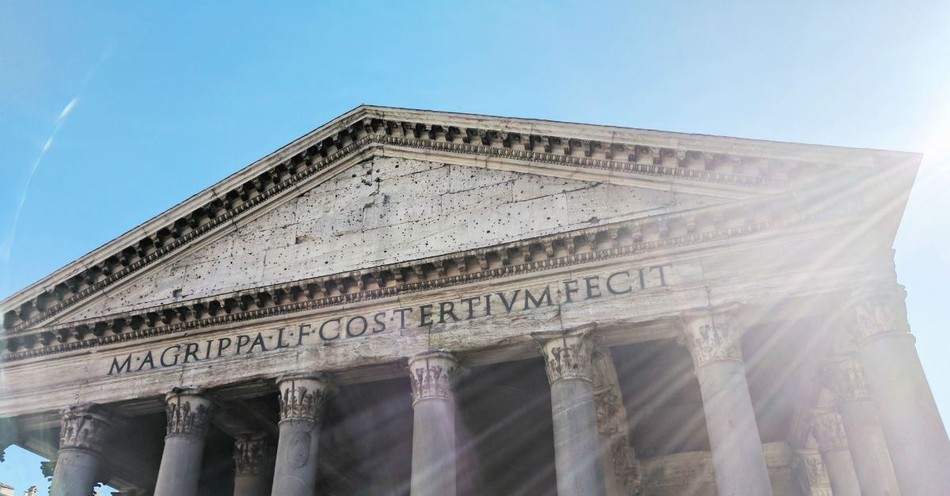Have you heard of the "Nicolaitans" and wondered who they were and why God cared to mention them in the book of Revelation? Whoever they were, it's obvious that Jesus hated their doctrine and deeds. Let's take a deeper look at this group of people.
The Nicolaitans are mentioned in the Book of Revelation in the New Testament, specifically in the letters to the churches in Ephesus and Pergamum. The references to the Nicolaitans are found in Revelation 2:6 and 2:15. While the information provided is limited, scholars and historians have debated the identity and beliefs of the Nicolaitans.
The exact nature of the Nicolaitans and their teachings is not explicitly detailed in the Bible, leading to some uncertainty and speculation. The name "Nicolaitans" is believed to be derived from the Greek words "nikao," meaning "to conquer" or "to overcome," and "laos," meaning "people." Therefore, some interpretations suggest that the Nicolaitans may have been associated with a group or individuals who sought to establish a hierarchy within the Christian community, possibly with an elitist or authoritarian agenda.
In the letter to the church in Ephesus (Revelation 2:6), it is commended for hating the practices of the Nicolaitans, which might imply that the Nicolaitans were engaging in behavior or teachings that were contrary to the values of the early Christian community. The thing about the Nicolaitans is that God hated their deeds.
But you have this in your favor: You hate the practices of the Nicolaitans, which I also hate. (Rev. 2:6)
In the letter to the church in Pergamum (Revelation 2:15), the Nicolaitans are mentioned in connection with holding to the teaching of Balaam, who in the Old Testament was associated with leading Israel into idolatry and immorality (Numbers 31:16). This suggests that the Nicolaitans may have been involved in practices that compromised the moral and spiritual integrity of the Christian community.
So also you have some who hold the teaching of the Nicolaitans. Therefore repent. If not, I will come to you soon and war against them with the sword of my mouth. (Revelation 2:15-16)
Despite these references, the historical details about the Nicolaitans remain somewhat elusive, and scholars often rely on extra-biblical sources and historical context to try to understand more about this group and its teachings. Overall, the warnings against the Nicolaitans in Revelation emphasize the importance of maintaining the purity of the Christian faith and avoiding compromise with practices that are contrary to the teachings of Christ.
Why are the Nicolaitans Mentioned?
Many wonder who the Nicolaitans were and how they ended up being named in the Bible book of Revelation. What made this group so unique in that the author of Revelation chose to highlight them?
Buried in a letter to the Church of Ephesus (Revelation 2), John has a number of remarks against this church located in a city that had a famous temple to Diana (the Roman version of the Greek god Artemis). Ephesus, compared to a number of other churches that received letters in Revelation, had quite a few good marks from God. Aside from growing a bit stagnant in their fervor for God, they resisted wicked practices, endured persecution, and weeded out false apostles from destroying their church.
The letter also makes one more positive remark. They hate the practices of a group called the Nicolaitans, which God also appears to hate. Revelation 2:6 has Jesus stating to the church in Ephesus: "But you have this in your favor: You hate the practices of the Nicolaitans, which I also hate."
Although it’s not out of the ordinary for God to hate practices of pagan groups, such as the child sacrifice of the Canaanites (Leviticus 20:2-5), this group mentioned seems to stand out from other sects that have arisen in Scripture and throughout church history. Nicolaitans have drawn a great deal of scholarly debate because much known about the group still lies in obscurity.
Why did God hate the practices and doctrines of the Nicolaitans so much? And how did they make their way into Revelation, in history, and possibly found their way into our society today?
The Founder of the Nicolaitans in the Bible
The Nicolaitans appear to come from a sect group at the time that followed a man by the name of Nicolas. His name can derive from a Greek root meaning “conqueror” or “destroyer.”
Some think Nicolas is the same man who appears to convert to Christianity in Acts 6:5 but lost his way to a teaching known as Gnosticism, a heretical teaching that swept away many members of the church in the second century. But nothing, other than the roots of his name, seemed to link him to the sect that seemed to plague the church of Ephesus.
If Nicolas in Antioch mentioned in Acts began the sect of the Nicolaitans, he seems to have fallen away from his faith. Revelation was written long after Acts, and perhaps during that time, Nicolas fell in love with idolatrous teachings and chose those over the ones of Christianity. That seems to align with the fact that Nicolaitans buckled under the pressures of Roman rule, lost their faith, and seemed to want to drag other Christians along with them.
The information available about the Nicolaitans is limited, and much of it comes from the writings of early Christian theologians like Irenaeus and Hippolytus, who mentioned them in their works. However, even in these writings, the focus is on the group as a whole and their teachings, rather than on individual names or leaders.
As a result, the identity and specific individuals associated with the Nicolaitans remain somewhat obscure in both biblical and historical records.
Doctrine and Practices of Nicolaitans
Who were the Nicolaitans in the historical context?
Later in chapter 2 of Revelation, the author seems to link the practices of the Nicolaitans with the practices of those who listened to Balaam (Revelation 2:14-15). Those who followed Balaam back in Numbers used Midianite women to seduce the men of Israel and lead them to worship other gods. Examples of such acts had played out with Solomon, for instance, when his wives from pagan religions led him astray and after other gods (1 Kings 11:1-5).
Because Revelation seems to link Balaam with the Nicolaitans, one can assume the church of Ephesus faced a similar dilemma. Immersed in pagan Roman culture in that city, the sect of the Nicolaitans may have attempted to woo the Christians away from their religion, just as they had been wooed before.
Nicolaitans also appeared to eat food offered to idols, which Acts appears to decree against (Acts 15:29). Although this doesn’t seem like a major offense, they had committed a serious spiritual crime in their context.
Smith's Bible Dictionary tells us this about the Nicolatans: "They, like the false prophet of Pethor, united brave words with evil deeds. In a time of persecution, when the eating or not eating of things sacrificed to idols was more than ever a crucial test of faithfulness, they persuaded men more than ever that was a thing indifferent. (Revelation 2:13,14) This was bad enough, but there was a yet worse evil. Mingling themselves in the orgies of idolatrous feasts, they brought the impurities of those feasts into the meetings of the Christian Church. And all this was done, it must be remembered not simply as an indulgence of appetite: but as a part of a system, supported by a "doctrine," accompanied by the boast of a prophetic illumination, (2 Peter 2:1) It confirms the view which has been taken of their character to find that stress is laid in the first instance on the "deeds" of the Nicolaitans. To hate those deeds is a sign of life in a Church that otherwise is weak and faithless. (Revelation 2:6) To tolerate them is well nigh to forfeit the glory of having been faithful under persecution. (Revelation 2:14,15)"
Why does that last one matter?
The Roman rule required sacrifice to their gods. Emperors such as Decius attempted to weed out Christians by enforcing sacrifices to various Roman deities. Those who resisted faced persecution and possible execution.
The Nicolaitans appeared to conform to this Roman culture and seemed to encourage Christians in Ephesus to do the same in a time of dire persecution (1 Corinthians 6:12). In eating the food given to the idols. This implies they had gone to the temples to receive this food and would’ve had to engage in the immoralities there to acquire this meat.
They seemed planted in the Asia Minor region to test the faithfulness of Christians in times when it seems that loyalty matters most: when physical and spiritual life and death are on the line.
The Nicolaitans Now
Although the sect of the Nicolaitans seems to have disappeared into historical obscurity, the ideologies of this group seem to persist today.
In American culture, Christians now face a choice to blend into society or stand out in this culture of compromise. Many people in the church today, like Solomon, attempt to marry several wives in a spiritual sense. We serve both God and money and [insert idol here].
But we can only serve one master. Our culture is reaching a tipping point where we do have to choose who we will follow; it requires sacrifice. We can serve gods or God, and if we choose the latter, like the church of Ephesus, we resist the Nicolaitans and their attempts to drag us with them in acts of idolatry and immorality.
Download our free PDF, A Biblical Guide to Revelations and Faith in the End Times, to learn more about the book of Revelations.
Photo Credit: Unsplash/Adam Wood








